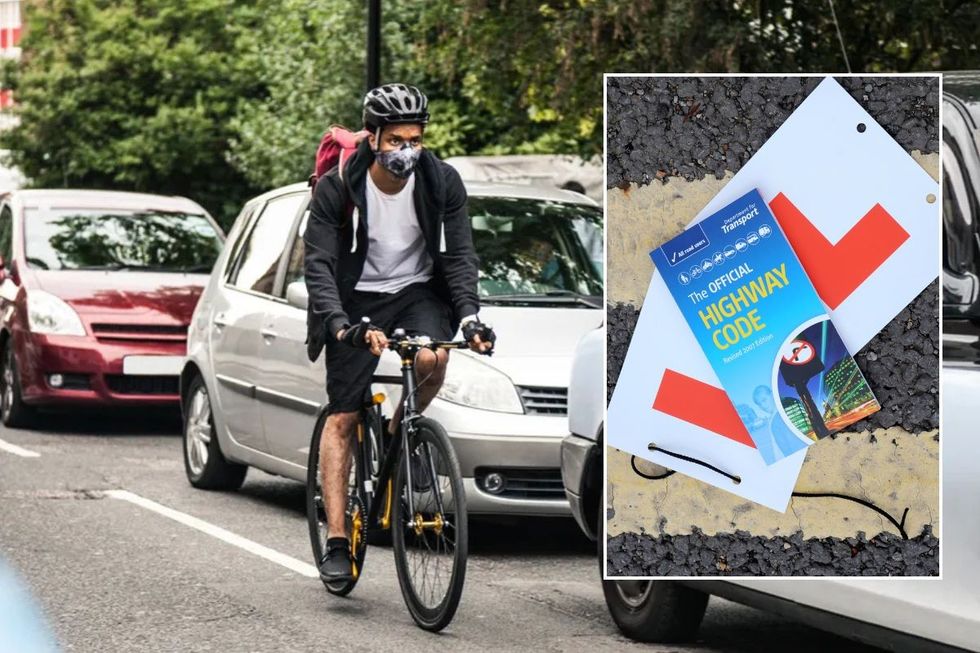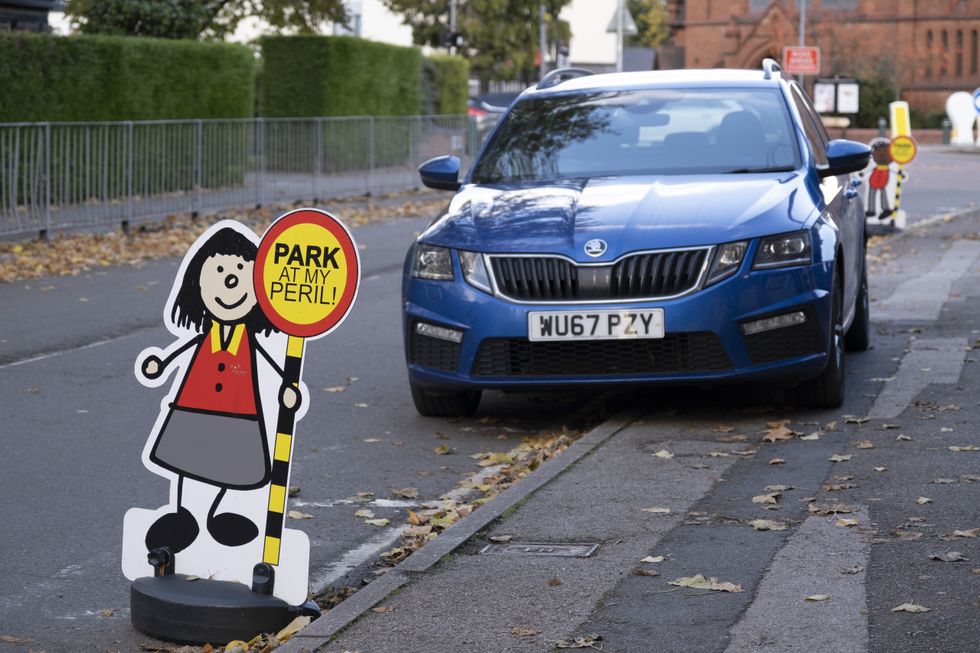WATCH: Eamonn Holmes admits he hadn't realised the Highway Code had changed
GB NEWS
The Government is expected to release a new Road Safety Strategy later this year
Don't Miss
Most Read
Trending on GB News
An MP has told GB News that rules could deal with a gap in safety requirements for drivers following support for all Britons to have access to better opportunities to walk and cycle.
It follows a report from the All-Party Parliamentary Group for Cycling and Walking (APPGCW), which aimed to highlight any changes that need to be made to ensure all people can take part in active travel.
Olly Glover, Liberal Democrat MP for Didcot and Wantage, spoke to GB News about how the Government could introduce rules to crack down on poor road behaviour and boost road safety.
The MP, who was first elected in July 2024, previously worked in senior operational management positions in Network Rail and pointed out the differences between train drivers and car owners.
Do you have a story you'd like to share? Get in touch by emailingmotoring@gbnews.uk

Olly Glover MP noted issues with how often drivers are tested to make sure they are safe on the road
GETTY/PA
He told GB News: "You pass your driving test and if you don't screw up too much, it could be decades before you have any form of assessment, so that's a key issue.
"Whereas with train drivers, they're regulated, they have assessments all the time, they're briefed in a forensic structure."
There have been growing calls for motorists to face certain cognitive tests or eyesight exams when people renew their licence to ensure everyone is safe on the road.
Glover also commented on the Highway Code changes introduced in 2022, which sought to create a "hierarchy of road users" and make sure that everyone was clear of their responsibility on the road.
Despite the overhaul of rules, some drivers still claim that they are unaware of any changes, despite being introduced more than three years ago.
The MP continued, saying: "I think that is so important, and communication is really important in different ways.
"You can come up with the best policy or the best rules, or guidance, but if you're not effective in telling people or talking about it, people won't know.
"Getting those public campaigners is crucial and we need to think really hard about communication, otherwise people won't know that anything has changed."
Former Transport Secretary Louise Haigh confirmed that the Government would be launching a new Road Safety Strategy this year, which would be the first update in more than a decade.
The Labour MP for Sheffield Heeley said there was "more work to be done" and that she was determined to prevent more tragic deaths on UK roads.
In October, AA President Edmund King thanked Louise Haigh and Future of Roads Minister Lilian Greenwood for the "very positive meeting", adding that the motoring organisation was looking forward to working to make roads safer.
The Department for Transport's THINK! campaign aims to reduce the number of people killed and seriously injured on roads in England and Wales.
It primarily focuses on young men between the ages of 17 and 24, who are four times more likely to be killed or seriously injured than other drivers.
The APPGCW also called for rule changes to ban people from parking on the pavement, given the impact it has on people in wheelchairs and those with pushchairs or prams.
The Highway Code currently has eight rules directly related to parking matters, with Rule 244 specifically referring to pavement parking.
LATEST DEVELOPMENTS:
- Major car brands recall 184,000 vehicles amid serious fears of doors opening mid-journey and engine fires
- Petrol and diesel drivers 'losing out' as drop in fuel prices could be 'short-lived' for hard-pressed Britons
- Tesla sales plummet 13 per cent amid backlash against Elon Musk as protesters call for global boycott

The APPGCW report called for rules to be introduced to crack down on pavement parking
GETTYIt states that drivers must not park partially or wholly on the pavement in London, and should refrain from doing so elsewhere unless signs explicitly permit it.
The guidance highlights how parking on the pavement can "obstruct and seriously inconvenience" pedestrians, people in wheelchairs, those with visual impairments and people with prams or pushchairs.








